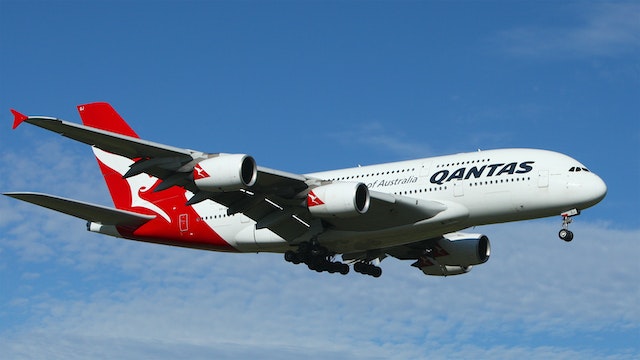
Why do we get jet lag? We get jet lag because rapid travel puts our circadian rhythm out of sync with the local time.
Jet lag is a fairly recent problem. In fact, the expression “jet lag” was only coined in 1966. The reason for this is that you have to be able to jump across three or more time zones very quickly for jet lag to happen. You cannot get jet lag on even the fastest ship because your body will adjust as you travel. There are 24 time zones and each one is about 15 degrees across, which works out to be about 1665 km at the equator. The fastest commercially available boat in the world can do about 100 km/h. It would take approximately two and a half days to cross three time zones, by which time your body would have adjusted.
Jet lag became a thing with the introduction of international jet plane travel. Earlier propeller planes flew much more slowly and had to stop to refuel more often. The jet engine allowed people to complete in 9 hours what took Columbus two months. The jet engine was invented at the start of World War 2, but it only became available to the public in the 1950s. International travel brought many great things, but it also brought the jet lag that we have to suffer through.
So, why do we get jet lag? Your body, and every living thing on this planet, has something called a “circadian clock” that is on a 24-hour cycle, and is tuned to the sun. It governs our sleep wake cycle. When it is dark, it tells the body to release melatonin in order to sleep, and when it is exposed to sunlight in the morning, it is reset, waking us up. The circadian clock doesn’t just tell you when to go to sleep and wake up, it gets your body ready for these activities. When you are asleep, your body temperature drops, your brain waves decrease, your heart rate slows, and your metabolism slows. All of these reach their minimum level about two hours before you wake up and then they start to rise. This decrease and increase is driven by the amount of melatonin that has been released into the system.
And this is what causes jet lag. Your circadian clock can adjust itself, but not quickly. When you arrive in a new time zone, your circadian clock is still telling you to wake and sleep at the same time as your old time zone. It releases melatonin into your system at the time you would usually go to sleep. It lowers your body temperature, brain waves, heart rate, and metabolism. Then it gets ready to wake up. The problem is that these biological reactions won’t be happening when you want them to because you are in a different time zone. You will probably be sleepy when you need to be awake and awake when you need to be sleepy.
The circadian clock is primarily light driven and exposure to light at different times will slowly reset it, but it takes time for it to adjust to the sun. And this is not just in humans. If you took a flowering plant with you, it would adjust, but it would open and close for about four days as though it were still on the old time zone.
It takes about one day for every two time zones to recover from jet lag. For example, if you travel from London to LA, you are crossing 8 time zones, so it will take you about four days to recover fully. There are several “cures” aimed at curing jet lag, but none of them really work. Melatonin tablets have been put forward, but there is no evidence that they work. The only really effective “cure” is time.
Interestingly, it is easier to recover from jet lag if you are travelling east to west than it is if you are heading west to east. Studies have shown that if you are travelling east to west, it only takes half as long to acclimatize to the new time zone. The reason for this is that when we go east to west, we are extending the day and delaying our circadian clock, but if we go west to east, we are shortening the day and extending our circadian clock. Most people find it far easier to extend a day than to shorten it.
So, jet lag is caused because our circadian clock is out of sync with the time zone we have travelled to. Jet lag has only existed since the 1960s, because it wasn’t possible to travel fast enough before then. And this is what I learned today.
https://www.worldtimeserver.com/learn/time-zone-facts-how-big-is-a-time-zone/
https://airandspace.si.edu/explore/stories/evolution-commercial-flying-experience
https://en.wikipedia.org/wiki/Jet_lag
https://www.nhs.uk/conditions/jet-lag/
https://www.mayoclinic.org/diseases-conditions/jet-lag/symptoms-causes/syc-20374027
